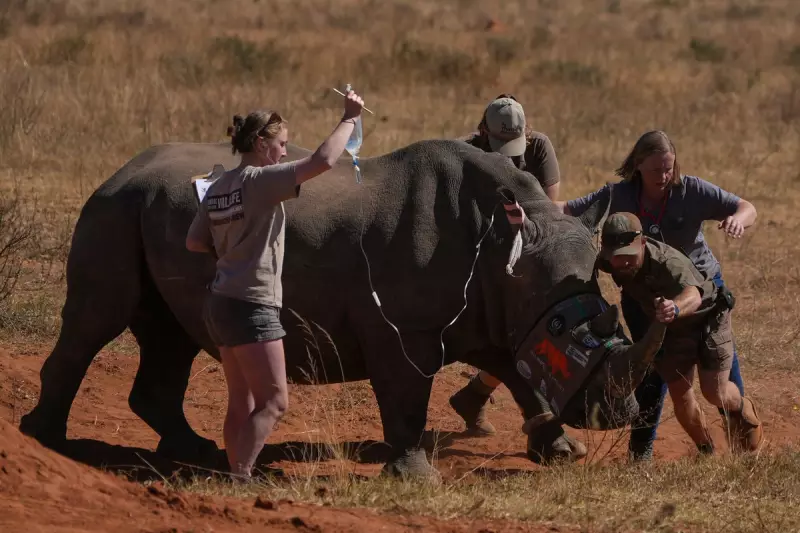
In a revolutionary move to combat the illegal wildlife trade, South Africa is turning to nuclear science to safeguard its endangered rhino population. Researchers have begun injecting radioactive isotopes into rhino horns, a method designed to deter poachers and aid law enforcement in tracking smuggled horns.
The Science Behind the Strategy
The innovative technique involves inserting small amounts of non-toxic radioactive material into the horns of live rhinos. This makes the horns detectable at international borders, where radiation scanners are commonly used to monitor cargo. The isotopes are carefully selected to ensure they pose no harm to the animals or the environment.
Why This Approach Matters
Rhino poaching remains a critical issue in South Africa, home to the majority of the world's rhinos. Despite extensive anti-poaching efforts, criminal networks continue to target these majestic animals for their horns, which are highly valued in illegal markets, particularly in Asia.
By making rhino horns radioactive, authorities hope to:
- Deter poachers by increasing the risk of detection.
- Enable faster identification of smuggled horns at ports and airports.
- Disrupt the supply chain of illegal wildlife products.
Challenges and Ethical Considerations
While the initiative has been praised for its creativity, some conservationists raise concerns about the long-term effects on rhinos and the potential for unintended consequences. However, proponents argue that the benefits far outweigh the risks, given the urgent need to protect these animals from extinction.
South Africa's Department of Forestry, Fisheries, and the Environment has assured the public that rigorous testing and ethical reviews are in place to ensure the safety and well-being of the rhinos involved.
The Bigger Picture
This groundbreaking project is part of a broader effort to integrate advanced technology into wildlife conservation. If successful, the radioactive tagging method could be expanded to other endangered species targeted by poachers, such as elephants and pangolins.
As the global community grapples with biodiversity loss, South Africa's bold experiment offers a glimmer of hope in the fight to preserve Earth's most vulnerable creatures.





